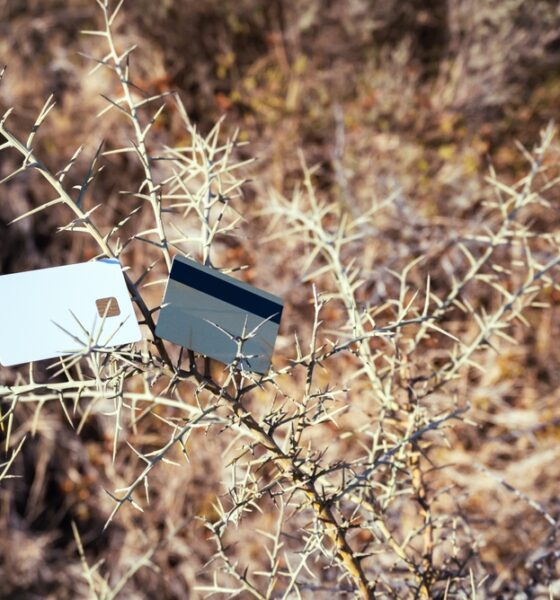

Environment
Crucial Tips for Reducing Waste Caused by Plastic Cards
The United Nations Environment Programme reports that global consumers create around 400 million tons of plastic waste every year. We all need to do a lot more to help reduce the amount of waste that we produce.
When most people think about plastic waste, they typically think of plastic bottles and other types of single-use plastics. These types of plastic have become a nuisance the world over, clogging waterways and affecting the environment in numerous ways. The one form of plastic waste many people do not think about is plastic card waste.
We all have them. From credit and debit cards to gift and insurance cards, you have likely used at least one type of plastic card in the past year. Once they are old or expired, many of these cards end up discarded somewhere because most people do not know what to do with them afterward. The good news is that there are several ways to reduce their environmental impact. If you are truly serious about reducing your plastic waste, then you will need to follow the guidelines listed below.
Leverage Card Recycling Programs
The most important way that we can help reduce plastic waste is by recycling old plastic products. This includes recycling old plastic cards.
Mastercard is one of the leading global payment providers, which means there are millions of Mastercard plastic cards in the world. They have partnered with HSBC, itself a British bank, to launch a plastic card recycling initiative.
The initiative seeks to establish a plastic card recycling program that shreds old and expired plastic cards so they do not end up in the environment. The process is meant to produce plastic that can be reused for different purposes.
The best thing about this initiative is that it accepts all types of plastic cards regardless of the issuer or brand. Once customers drop off their cards at one of the participating HSBC outlets, they get a receipt that shows their contribution to helping the environment with the plastic card issue.
Use Multi-use Cards
A multi-use card, as the name implies, is a card that holds different types of information so it can be used in different ways. A great example is the Dual Network benefit card, which holds member ID information and provides numerous benefits on a single card.
When using this card, members who have opted in do not have to carry multiple cards but can still get all the benefits included in it. These cards are issued by a provider of premium healthcare solutions known as Incomm Payments, and they simplify the process of getting health insurance, paying for the different health products members require, and much more.
Ask About Take-back Programs
Apart from HSBC, other businesses and banks accept plastic cards that would otherwise end up in a landfill or in the environment. Many of these programs work with plastic gift cards, of which there are over 10 billion in the world at any one time.
It is very important that you only hand your credit or debit card to banks that have take-back programs that ensure your privacy. Remember that a credit or debit card holds a lot of personal and banking information, and you do not want this information to end up in the wrong hands.
Go with Electronic or Virtual Gift and Credit Cards
If you do not need a physical credit or gift card, there is no need to get one knowing it will end up damaging the environment in some way if not disposed of properly. Fortunately, numerous e-gift cards and virtual credit card services ensure you get the services or gifts you require without a physical card.
Plastic cards are an environmental hazard that many people do not think about. They get old, expire, or get lost all the time and in many of these instances end up in the environment somewhere. Fortunately, there is something we all can do about this, including recycling, using multipurpose cards, and foregoing plastic cards altogether.


 Environment12 months ago
Environment12 months agoAre Polymer Banknotes: an Eco-Friendly Trend or a Groundswell?

 Features11 months ago
Features11 months agoEco-Friendly Cryptocurrencies: Sustainable Investment Choices

 Features12 months ago
Features12 months agoEco-Friendly Crypto Traders Must Find the Right Exchange

 Energy11 months ago
Energy11 months agoThe Growing Role of Solar Panels in Ireland’s Energy Future





























